The Dalai Lama 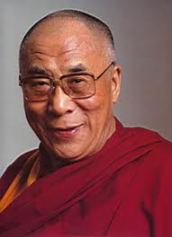
Tenzin Gyatso is better known these days as the 14th Dalai Lama, a great spiritual leader who travels the world advocating for the Tibetan people and teaching about compassion as the source of happiness in life. But it was not always thus—Gyatso was once a bored student who found it hard to get motivated. “Only in the face of a difficult challenge or an urgent deadline would I study and work without laziness,” he recalls. He has learned his lesson since: “You must not procrastinate,” he now teaches. “Rather you should make preparations so that even if you die tonight, you would have no regrets.”
Victor Hugo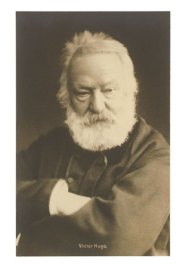
The great French poet and novelist, whose masterpieces include the epic historical novels Les Misérables and The Hunchback of Notre Dame, had a unique method to stave off procrastination: he had his servant strip him naked in his study and not return with his clothes until the appointed hour.
Herman Melville 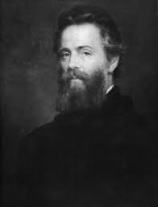
The American author reportedly has his wife chain him to his desk while he was struggling to finish his epic novel Moby-Dick; or, the Whale. It worked: the book, first published in 1851, is often listed among the greatest works of fiction ever written.
Saint Augustine 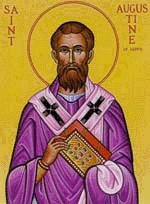
Augustine of Hippo lived in North Africa in the fourth century. He only became a saint late in life, after an adolescence rife with licentious behavior. Both Bob Dylan and Sting have written songs featuring this saint/sinner. Today we might describe him as a recovering sex addict. From the age of seventeen he started down the path of sexual hedonism, leading him to abandon Christianity all together two years later.
For the rest of his life Augustine struggled to return to his faith and overcome his temptations. Even in his thirties, he found it hard to resist the allure of sex. He offered his prayer, “Grant me chastity and continence—but not yet,” which has become a motto of sorts for procrastinators.
Augustine’s decision to delay renouncing his physical desires caused him great anguish. In his Confessions he described the guilt: “Streams gushed from my eyes, an acceptable sacrifice to you, my God. And I poured out my heart to you, saying, ‘How long? How long? Why not put an end to my uncleanness right now?'”
Ultimately, Augustine found the necessary inspiration by reading one of Paul’s letters from the Bible (in a set of circumstances where he felt God himself was directly him to a relevant passage), which strongly admonishes against the desires of the flesh (“Not in orgies or drunkenness, not in promiscuity and licentiousness, not in rivalry and jealousy. But put on the Lord Jesus Christ…”).
Frank Lloyd Wright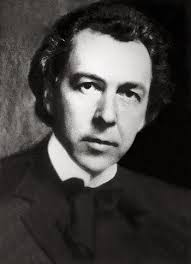
The great American architect designed his most famous house at the age of 67—in two hours. Wealthy Pittsburgh businessman Edgar Kaufmann Sr. commissioned Wright to create Fallingwater, a house in rural Pennsylvania, in 1934. Wright visited the site in November and wrote to Kaufmann assuring him that he had been working on the plans, but had not actually drawn a thing.
So imagine Wright’s surprise when Kaufmann called him at home early on Sunday morning, on September 22, 1935, to announce that he would be visiting before lunch, and couldn’t wait to see the design. Wright calmly finished breakfast and, while a group of extremely nervous apprentices looked on, drew the plans in the time it took Kaufmann to drive up from Pittsburgh. This time the procrastination paid off: Fallingwater was listed as National Historic Landmark in 1966, and is listed among Smithsonian’s Life List of 28 places “to visit before you die.”
Margaret Atwood
Canada’s most celebrated writer is also one of the country’s most prolific. In a celebrated five-decade career stretching back to 1961 she has churned out 14 novels, 9 short story collections, 16 volumes of poetry, 8 children’s books and 10 full-length non-fiction works, not to mention 2 librettoes, 4 ebooks and 3 TV scripts. So how does she do it? Often, apparently, she spends “the morning procrastinating and worrying, and then plunges into the manuscript in a frenzy of anxiety around 3:00 p.m.”
Johann Rall
Colonel Rall (also spelled Rahl) was a German commander of Hessian troops at the Battle of Trenton, a turning point in the American War of Independence. On Christmas night in 1776, George Washington crossed the Delaware River with his troops in preparation for a surprise attack on the Hessian forces. According to one account, Rall was busy playing cards that night when he was handed a note from a local Loyalist warning him Washington’s forces were approaching. Rall wanted to finish the card game first, so he put the note in his coat pocket without reading it.
Washington’s soldiers attacked the next morning and captured most of the Hessian forces after a brief battle, with negligible losses to the Americans. Rall was struck by a musketball while leading his troops in retreat and died from his injuries a few hours later. The note warning him about the attack was later found in his coat pocket, still unopened.
Gene Fowler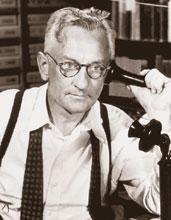
Fowler wrote 17 books and many more screenplays in a long and successful career in Hollywood. “Writing is easy,” he explained. “All you do is sit staring at a blank sheet of paper until the drops of blood form on your forehead.”
Marcus Aurelius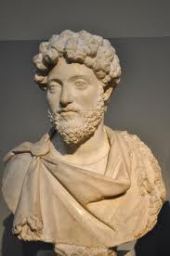
This is more of a famous non-procrastinator actually, but worth knowing about. The last of “Five Good Emperors,” Marcus Aurelius ruled Rome from AD 161 to 180, when its empire controlled most of the western world. He was a great warrior and statesman, but is best remembered now as a philosopher. This is what he had to say about procrastination, in his famous Meditations:
“Think of all the years passed by in which you said to yourself “I’ll do it tomorrow,” and how the gods have again and again granted you periods of grace of which you have not availed yourself. It is time to realize that you are a member of the Universe, that you are born of Nature itself, and to know that a limit has been set to your time.”
Samuel Johnson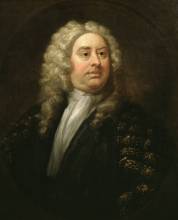
In 1751 Dr. Johnson, the great English writer best known for his monumental dictionary, composed a piece for the weekly magazine The Rambler in which he described procrastination as “one of the general weaknesses, which in spite of the instruction of moralists, and the remonstrances of reason, prevail to a greater or less degree in every mind.” Naturally Johnson procrastinated writing the article until the last possible moment, finishing it in the parlor of his good friend Sir Joshua Reynolds while the errand boy waited outside to bring it to press. This was “typical,” according to another friend, Hester Piozzi, who said that “numberless are the instances of his writing under immediate pressure of importunity and distress.”
Samuel Taylor Coleridge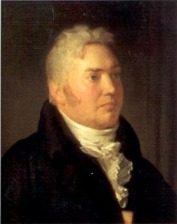
Coleridge was a famous eighteenth-century English poet, one we all probably learned about in school. Two of his better-known poems are The Rime of the Ancient Mariner and Kubla Khan (“In Xanadu did Kubla Khan, A stately pleasure-dome decree”). Coleridge was also one of the most infamous procrastinators of all time.
Over his life, publishers were constantly reporting imminent pieces from Coleridge that ultimately failed to appear. He left most of his works in fragments, brilliant but incomplete scraps that were doomed to obscurity. Coleridge himself describes his procrastination as “a deep and wide disease in my moral Nature … Love of Liberty, Pleasure of Spontaneity, these all express, not explain, the fact.” As Molly Lefebure describes him in her book, A Bondage of Opium, “his existence became a never-ending squalor of procrastination, excuses, lies, debts, degradation, failure.”
Even his famous poem Kubla Khan was never actually finished. Coleridge contends that it was based on an opium-inspired dream that was interrupted because a “Person from Porlock” came along. This has become the most famous excuse in all literature as scholars and other writers recognize it for what it is: a fib. For example, the English poet Stevie Smith wrote a piece titled Thoughts about the Person from Porlock, where she made it clear that she didn’t believe Coleridge’s story and longed to have such a fictional person come by and interrupt her own work.
Like many procrastinators, Coleridge was an impulsive individual ruled by his passions (impulsiveness often leads to irrational delay, making people more sensitive to the pleasures of the moment and stopping them from concentrating on long-term goals). His addiction to opium made matters worse—like other drug addictions, it both increased his impulsive and provided a powerful distraction. The poet was constantly beset with the choice between smoking opium or finishing one of his many works. Opium often won out.
Douglas Adams
The author of the beloved Hitchhiker’s Guide to the Galaxy was as legendary for his procrastination as he was for his one-liners. “I love deadlines,” he once quipped. “I like the whooshing sound they make when they go by.” He somehow managed to produce nine books, despite the fact that he claimed to hate writing. Cups of tea, baths, and days in bed were his ways of putting it off. He never overcame procrastination himself, but required publishers and editors to lock him in rooms and glower at him until he produced. This is not an exaggeration according to Adams or his friend Steve Meretzky. As Meretzky puts it, “Douglas has raised procrastination to an art form. Hitchhikers Guide would never have gotten done if I hadn’t gone over to England and virtually camped out on his doorstep.”
The major reason for Adams’ chronic delaying appears to be task aversiveness. Though he was an able writer and extremely creative, he found putting pen to paper unpleasant. He put it off as long as possible, and then produced in a frantic rush when it became really necessary. With the wealth from this earlier bestsellers, writing became less and less necessary, and the delays stretched into years.
Adams struggled mightily with the writing of his final novel, The Salmon of Doubt, and would soak for hours in a bathtub instead of getting on with it. He had been working on it for ten years and still hadn’t completed a first draft when he died of a heart attack in 2001. The fragments were published posthumously, but they are far from forming a coherent novel.
Bill Clinton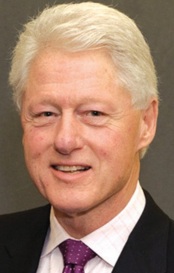
In 1994, one year into the first of his two terms, Time magazine described the then US president as a “chronic procrastinator.” His aides would give Clinton weeks or even months to comment on early drafts of important speeches, but the process always ended with what Time called “harrowing last-minute cut-and-paste sessions.” Vice President Al Gore agreed that Clinton was “punctually challenged” and even his wife Hilary admitted that it was “maddening to try to keep him on any kind of schedule.”
General George McClellan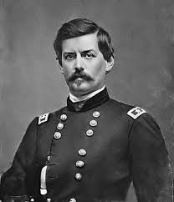
The North might have won the US Civil War a lot faster if not for the procrastination of General McClellan, who was renowned for his meticulous preparation of the Union army. “If he can’t fight himself, he excels in making others ready to fight,” Lincoln said of him. Except the endless preparation was a form of procrastination; when the chips were down, McClellan couldn’t bring himself to go into battle.
In 1862, the general hesitated and missed a great opportunity to capture Richmond from Robert E. Lee’s men. Later that same year he dillydallied both before and after the battle of Antietam, squandering a two-to-one advantage over Lee. Some analysts say the delays made the war drag on by three extra years.
“There is an immobility here that exceeds all that any man can conceive of,” wrote another Union general, Henry Halleck, of McClellan. “It requires the lever of Archimedes to move this inert mass.”
Leonardo da Vinci 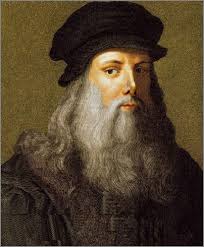
Leonardo is known today as the supreme genius of the Italian Renaissance—but at the time he had a reputation as a daydreamer who never actually finished anything. No one doubts that he was a man of incredible talent. He explored almost every field available to him, in both science and art. He made significant contributions in engineering, architecture, biology, botany, anatomy, math, and physics. He sculpted, painted both portraits and murals, and made plans for ingenious machines that wouldn’t be built for centuries (e.g., planes, helicopters and submarines). But he also never finished a project on time.
Part of what made Leonardo such a “Renaissance Man” was that he was too easily distracted. His talents and energy were often wasted in doodles and unfinished projects. It took the painter 16 years to complete his most famous work, the Mona Lisa (also known as La Gioconda). He left both The Adoration of the Magi and Jerome in the Wilderness unfinished, took 13 years to complete the version of The Virgin of the Rocks in London’s National Gallery, and his equestrian projects were never built.
Leonardo only finished The Last Supper after his patron, Ludovico Sforza, Duke of Milan, threatened to cut off funds. According to one story, he was outraged when a prior from the monastery where he was painting the fresco complained about the delay. Leonardo wrote to the head of the monastery explaining he had been struggling to find the perfect villainous face for Judas, and that if he could not find an appropriate face, he would use the features of the prior who complained.
In his later years Leonardo regretted having “never having completed a single work.” He appealed to God, “Tell me if anything ever was done. Tell me if anything was done.” When he died in France in 1519, he left numerous sketches for unfinished projects in his codices.
Hamlet
OK, he’s a fictional character, but the lead character in Shakespeare’s great tragedy is one of the world’s most famous procrastinators. At the start of the play his father’s ghost visits Hamlet and tells the Prince of Denmark to avenge his murder. “To be or not to be,” Hamlet asks himself—when the real question is, are you going to kill Uncle Claudius, your father’s murderer, or not? Instead Hamlet dillydallies for most of the play—which is Shakespeare’s longest, four and a half hours in the uncut version—then stabs another character, Polonius, to death instead. He eventually does slay Claudius in the play’s final scene, but only after his beloved Ophelia has committed suicide and his mother and several other characters have died first. Such are the perils of chronic hesitancy.
Hello,
As much as it can be motivating to see historic figures and prominent individuals as procrastinators, the notion of postponing things remains to be very limiting of human potential.
I have come across an article that discusses the traits of highly empathetic people. One of the traits is that empathetic individuals don’t seek perfection and rather lack the evident habit of procrastination. Procrastination can be linked to perfectionist tendencies in that procrastinators are not encouraged to start off things in fear that the product of their work will not end up as they expect.
I myself am a procrastinator. I am still young and have not yet experienced the prolonged dangerous effects of this unhealthy lifestyle. My potential being possibly restricted by such consequent habits brings many worries concerning my future. I would like to take up some effective tricks to tackle this problem.
Famous procrastinators prove to us that talent and perseverance can bring the individual to many successes despite failed time management. Still, procrastination is stressful. Without it, one can do with more relief and less anxiety.
Bringing up the matter of famous procrastinators seems to be one of hopefulness and motivation and less of promoting procrastination.
So, thank you for sharing!
In hopes that all those here who suffer from the habit of procrastinating, see that our time is limited and we are not as immortal as we think we are!
-R
Procrastination is my “long dark tea time of the soul ” but the SEP ( someone else’s problem ) absolves me from guilt, deadlines and panic to have another cup of tea/ beer and let the day evolve in its own way . Thank you Douglas Adams !!!
Steve Jobs was a procrastinator too !
Tell me more.
He’s putting off telling you.
Procrastination is my “long dark tea time of the soul ” but the SEP ( someone else’s problem ) absolves me from guilt, deadlines and panic to have another cup of tea/ beer and let the day evolve in its own way . Thank you Douglas Adams !!!
My daughter is a beautiful procrastinator.